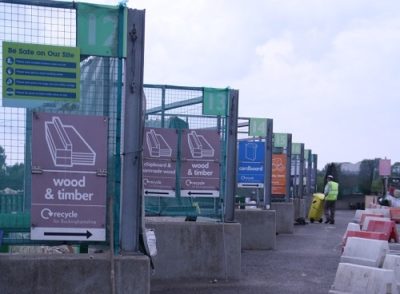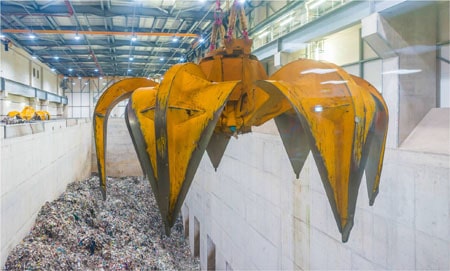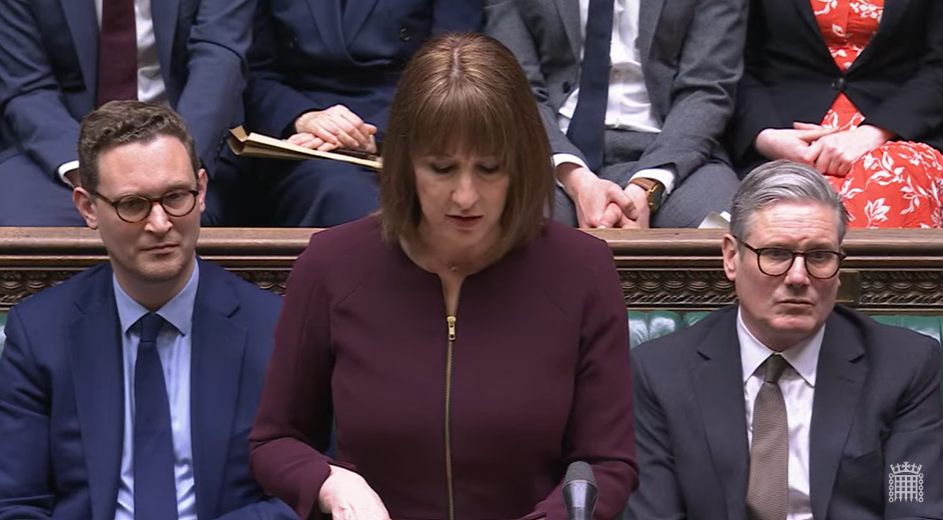The company is thought to be the first waste management firm to criticise the proposals, issued after an Agency investigation found large levels of persistent organic pollutants (POPs) in seating textiles and foams, publicly.
The Agency warned councils in September that they must incinerate all upholstered waste domestic seating, such as sofas or armchairs (see letsrecycle.com story). The guidance also states this stream must not be mixed with other non-POPs wastes.
According to the guidance, the EA will undertake an assessment of compliance “across the sector” from January 2023, just more than two months’ time.
In an opinion piece published on FCC’s website yesterday (19 October), Julie Fourcade, the company’s head of external affairs, said good regulation should be “risk-based and proportionate”. She suggested this was not the case for the Agency’s POPs guidance.
Ms Fourcade called for “a minimum” 12-month grace period before the guidance comes into force, “if the EA does plan on pushing ahead with the new guidance.”
This, she said, would “allow the sector to get the necessary infrastructure in order”.
HWRCs
Ms Fourcade questioned whether it made “sense” to keep POPs waste separate from other streams at household waste recycling centres (HWRCs).

“One of the main questions I’ve been asking myself and the EA is whether it’s proportional to keep POPs waste and non-POPs waste separate at HWRCs and waste transfer stations if they are destined to be mixed once they reach an EfW facility,” Ms Fourcade said.
“It is also quite unlikely that all HWRCs have the required space to be able to be able to provide separate storage for this waste stream.
“At FCC Environment, our analysis has shown that only half of our HWRCs would be able to fit another skip to accommodate this waste.
“This leaves a real risk that we may have to remove another container to make space, potentially reducing the services we’re able to offer at that HWRC.”
FCC describes itself as “the UK’s leading operator of HWRCs” for local authorities. The company says it operates 87 sites, with “more to come”.
Capacity
Ms Fourcade said another of the main issues was the lack of EfW capacity to deal with this new waste stream.

She said there was currently not enough spare capacity within the existing EfW network to deal with the additional “several hundred thousand tonnes each year”, as most is already tied to existing contractual arrangements between local authorities and waste operators.
Ms Fourcade also said the shredders already in operation across the UK were unlikely to comply with the new regulations, “as it is difficult to guarantee that contaminated POPs waste and non-contaminated waste would be able to be kept separate.”
“This would result in the requirement for additional shredding facilities – which of course need additional investment and development,” she said.
“Shredders alone cost around £500,000 and establishing the infrastructure required to meet the new POPs guidance will take at least a year given that the development period for facilities requiring the necessary ventilation upgrades and EA permitting timescales is currently in excess of 12 months.
“Given that the guidance was effective immediately as of last month, this can only mean a mounting orphan waste problem in the short-term.”
Concerns
FCC is far from alone in expressing concerns about the Environment Agency’s guidance. In the private sector, the Environmental Services Association has written an open letter to the Agency with fears that there are currently “very few” EfW facilities with the dust abatement techniques required (see letsrecycle.com story).

In the local authority sector, the Local Authority Recycling Advisory Committee surveyed its 306 members and found that more than half (55%) of those who responded said they could not comply with the guidance by January (see letsrecycle.com story).
The National Association of Waste Disposal Officers, a network for senior waste managers at disposal authorities, told letsrecycle.com it had similar fears about the timescale in which to implement the guidance (see letsrecycle.com story).
The Association of Directors of Environment, Economy, Planning and Transport, the organisation representing the local authority ‘place directors’ responsible for providing day-to-day services, also said it had “serious concerns” (see letsrecycle.com story).










Subscribe for free